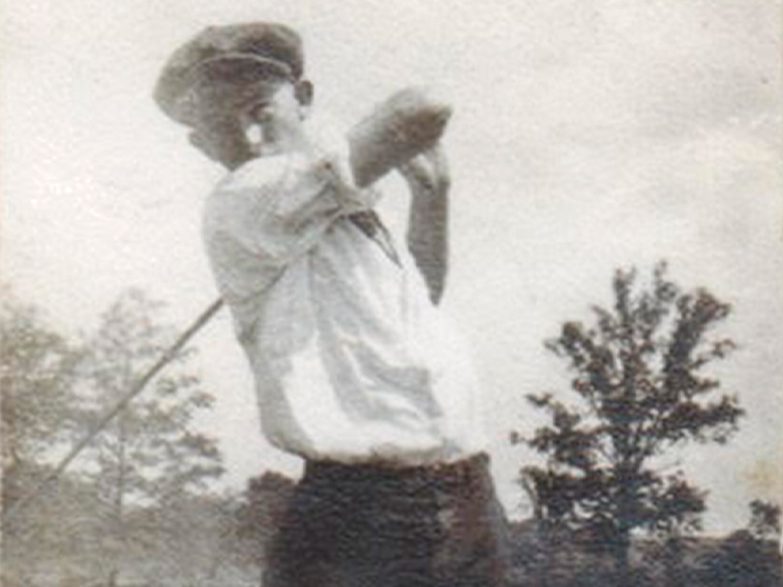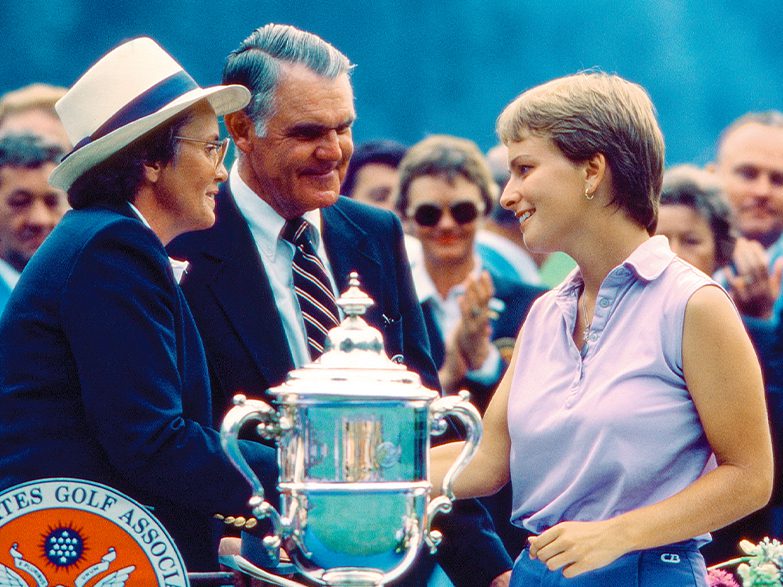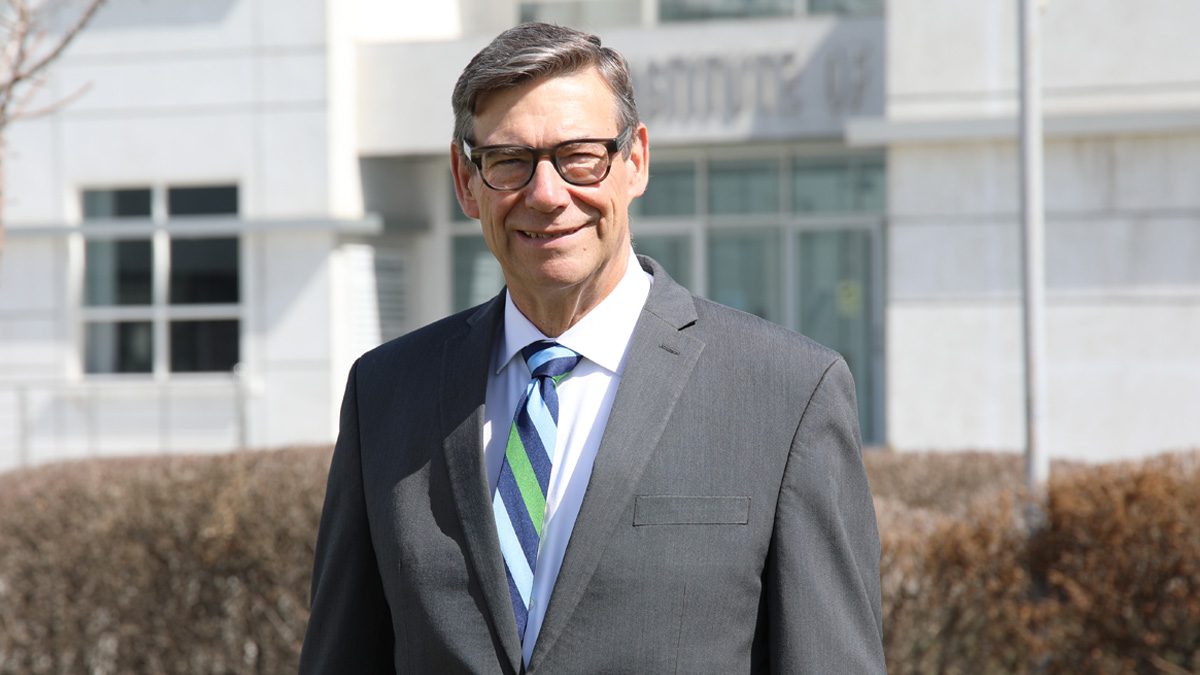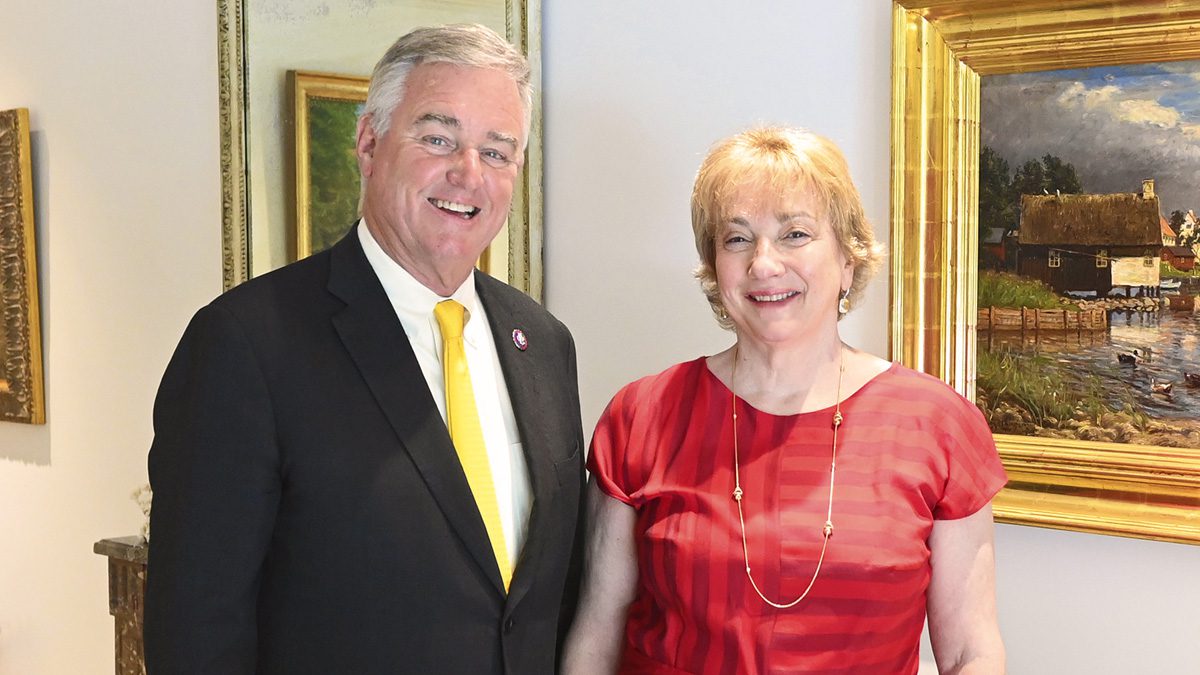
Notes From The Field
Letter Perfect
Dottie Pepper ’87 has achieved great success in the world of golf. Her new book pays homage to the mentor who helped get her there.
By Vince Moore

George J. Pulvar Jr., circa 1912
In Dottie Pepper’s new book, “Letters to a Future Champion: My Time with Mr. Pulver,” NBC Sports broadcaster Mike Tirico poses an interesting question in the afterword.
“Why,” he wrote, “among thousands of young, talented golfers and hundreds of successful professional golfers, has Dottie Pepper lived such an accomplished and impactful life?
Pepper ’87 has certainly achieved much. She was a top amateur in the state of New York who became a three-time All-American at Furman. She won 17 times on the LPGA Tour, including two major tournaments, and was a Solheim Cup stalwart in six different international competitions.
She was named LPGA Player of the Year in 1992. Once her playing career was over, Pepper became one of golf’s top broadcasters, working with the Golf Channel, NBC and ESPN before joining CBS in 2016.
That allowed her to become the first broadcaster, male or female, to cover all four of golf’s major tournaments. So why was Pepper able to constantly move forward and get better at every level, especially in a sport where self-doubt is always a companion and failure occurs as often as not? Tirico answered his own question a little later in the afterword. It’s all right there in the book, a touching tribute to an elderly New York golf professional who recognized Pepper’s talent early on and made sure she got the most out of it.
A secret revealed
The focus of the book, which was published in 2021, is a collection of letters that Pepper and George Pulver Sr. wrote one another over their time working together. It began in 1981, when Pepper was in her early teens and the golf professional was 83. The correspondence, in addition to their lessons together, continued regularly until Pulver died in 1986, Pepper’s junior year at Furman. Pepper had kept the letters in a three-ring binder in all the years since, and they traveled with her no matter where she went. She had always believed the letters might make a good book, since it would allow other young golfers to benefit from Pulver’s insights. But when would she ever have time to write a book?
“Once the pandemic hit in March of 2020, and there were no sports on TV, I thought it was the perfect time to start working on the book,” says Pepper, who lives in Saratoga Springs, New York, with her husband, David Normoyle.
In his letters, Pulver constantly reminded Pepper that the secret to achieving greatness didn’t lie in her swing mechanics but in her desire to become better. Her swing was good enough to take her where she wanted to go.
“It is the mental and temperamental factors, the desire to win, the sweat and tears … these are the things that produce a great athlete,” he wrote.
Pulver’s message wasn’t lost on Pepper, who displayed as much intensity and determination on the golf course as anybody. It was true in college as well as the LPGA Tour, and it was especially true at the Solheim Cup, a match play competition where she compiled an outstanding 13-5-2 record. In fact, her fiery temperament and will to win so infuriated the European team that her face famously ended up on a punching bag in the team room during one competition.
‘Success might dart at you’
“Mr. Pulver said there has to be the will to win, to fight to the very end,” Pepper says. “All the great players had those qualities. He kept saying you need to be prepared because success might dart at you at any moment.”
It was good fortune that darted at Furman in the early 1980s when Pepper, still in high school, sent a letter to Clemson University inquiring about its women’s golf program. The school didn’t have one at the time, but Bobby Robinson ’68, the Clemson men’s golf coach, forwarded the letter to Willie Miller, who was in charge of Furman’s program. Miller contacted Pepper, and the rest is written in the record books.
Pepper says it was her good fortune, too, to end up at Furman. In her book, her descriptions of why she chose the university over a number of other schools could be included in an admissions office brochure. She wanted to play college golf at the highest level, get a challenging academic experience and earn a degree in four years, and she says Furman provided it all.
“I probably studied too hard and should have had more fun,” Pepper says, laughing. “But I can’t say enough good things about the experience I had at Furman.”
She’s also been a faithful alumna. In addition to being a generous donor, she played every year in the Furman LPGA Pro-Am that raised money for the golf programs. She created an internship opportunity at CBS Sports for a member of the Furman women’s golf team who then worked alongside her at several PGA Tour tournaments. She serves as a member of the Furman Athletic Hall of Fame committee. Even her dogs have borne the Furman name in various ways.
Jeff Hull, the Furman women’s golf coach, says Pepper has been very supportive of the program and is always available to talk with the team.
“She has a great message about what Furman can offer and how her time here prepared her for life on the tour and, later, as a broadcaster,” he says.
While it isn’t possible anymore to watch Pepper play golf, you can see her at work whenever CBS is broadcasting a tournament. She is the network’s lead on-course reporter, where she talks about what she is seeing from ground level. She might be reporting on a player’s chances of pulling off a difficult shot or how a player hit a low, running shot to wipe a clump of mud off the ball or that Tiger Woods missed a belt loop that day.

Pepper is congratulated for being the low amateur in the 1984 U.S. Women’s Open. / Photo: U.S. Golf Association
A reason to keep moving
Pepper is glad she finally got around to putting the book together. It’s now in its second printing, and she’s happy that others can become acquainted with her mentor. Her research also allowed her to discover a copy of a long-lost letter she never received, a letter written by Pulver’s son a few weeks after his father’s death in 1986 and addressed to Pepper’s P.O. Box at Furman. It was confirmation that she wasn’t the only one who benefited from the relationship.
The son wrote that his father had been struggling with the recent death of his wife when a “sensitive and uncommonly bright sixteen-year-old” asked for his help and gave him a reason to keep moving forward. Mr. Pulver told his son that the young girl was destined to be a “champion, surely as morn follows evening.”
He was right, of course. It would only be a few more years before Dottie Pepper became the great champion he envisioned.


